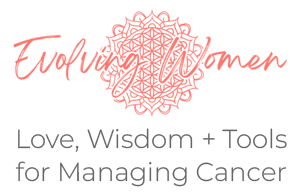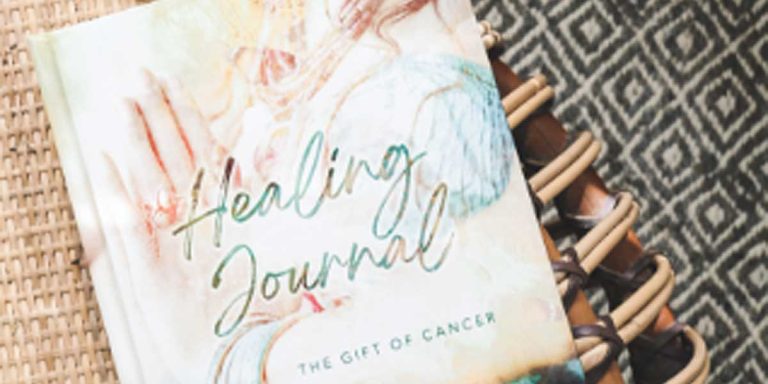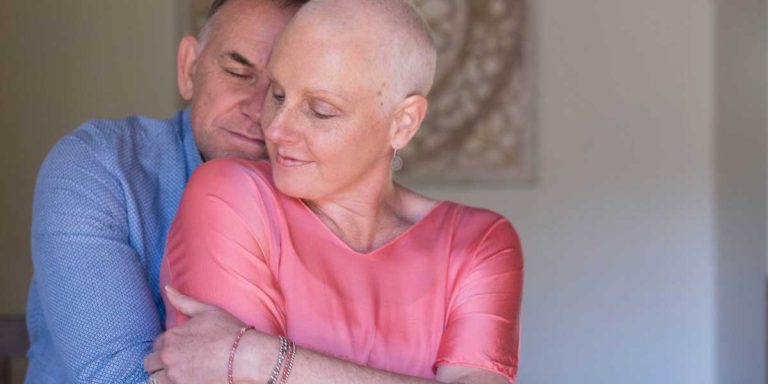You have cancer: now what?
Your head is probably spinning, and you feel as though the wind has been sucked out of you. In a split second, life as you knew it is gone.
Now before we get to which questions to ask, here are some things I wish I had thought to do to set myself up for success before I started treatment…
The first things you should do:
- Find the best doctor(s) you can. Be willing to travel and be sure to seek second, third and maybe fourth opinions to make sure you are working with the best doctor and ensure you are getting the best treatment.
- Choose a positive mindset. You may not have chosen for cancer to show up so abruptly in your life but you do have a choice in how you respond to its unwanted visit. Choose thoughts that uplift and support you on your journey.
- Select your medical support team. Navigating a cancer diagnosis takes a wide and varied team of professionals. Pull together a team of physicians as well as integrative doctors (to teach you how to build up your immunity and spiritual grit) to put you on the best path for healing.
- Focus on lifestyle choices. The main things you will have control over are what you choose to eat and drink and how you move. Consult with a naturopath or nutritionist to explore healthy diets to maintain good gut health and alternative therapies like massage, yoga and meditation to boost and maintain physical and emotional wellbeing.
- Create your personal support team. Surround yourself with friends and family that lift you up and make you feel good about you. Enlist the support of loved ones that will stand by you through thick and thin.
- Practice self-care. Whether this has been part of our regular routine or not, this is the time to add self-care to help bring calm and bolster self-healing throughout treatment.
Best Questions to Ask
Studies show that cancer patients who feel informed about their diagnosis and treatment options typically navigate their cancer journey with fewer side effects than those who simply follow their doctorâs suggestions without challenging them.
Feeling informed gives patients, a sense of control over their disease and treatment options â and that feeling of empowerment plays a role in the healing process.
Be sure to take the driverâs seat in your treatment journey. After all, it is your body and you are the one who will live in this body long after the doctors are gone.
Ask your doctor to explain anything and everything you are uncertain about.
Prepare questions in advance of your appointments and bring a notebook along to take notes. I highly recommend that you take a support person to all appointments to be your eyes, ears and memory and to assist you in making key decisions about your treatment options.
I promised you 10 questions to ask but I have so many more that I found personally helpful and critical to my care.
Here are the 10+++ questions you should ask:
1.What causes this type of cancer?
2.What are the risk factors? If itâs genetic, are other family members at risk?
3.What lifestyle changes (diet, exercise, rest) do you recommend? You may find your cancer specialists are unable to advise you here so be sure to consult with practitioners such as integrative doctors, naturopaths, nutritionists, exercise physiologists etc to ensure you get the most current and accurate information.
4. What are my treatment options?
5. Are there activities that should be avoided because they might trigger or make my symptoms worse?
6. What should I do if new symptoms develop or existing ones worsen?
7. What medical tests and procedures are necessary? How often?
8. What stage is my cancer? What does that mean?
9. What is my overall prognosis or chance of recovery?
10. What are the average survival and cure rates?
11. What is the recommended treatment?
12. How often will I have treatment â and for how long?
13. What are the potential side effects?
14. What are the benefits versus the risks of each treatment option?
15. Are there alternative therapies? What are they? Be sure to consult with practitioners such as integrative doctors, naturopaths, nutritionists etc
16. What are the expected results of treatment?
17. Is the treatment painful? If so, is there a way to make it more comfortable?
18. How long is the recovery?
19. When can I resume normal activity (if itâs been hindered)?
20. Has my cancer spread? If so, how does this change treatment decisions?
21. Am I eligible for any clinical trials?
22. Whom should I call with questions or concerns outside office hours?
Hi, I’m Cindy Scott
I am a two-time breast cancer thriver. Cancer’s visit has been the most confronting yet expansive experience of my life. I hope in time you will find this too. I am super passionate about helping people more ease-fully navigate a cancer journey and live a life they love.







